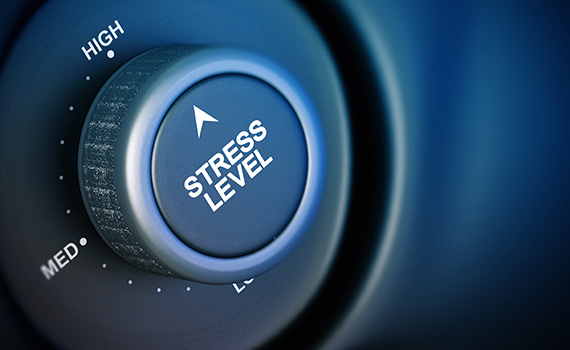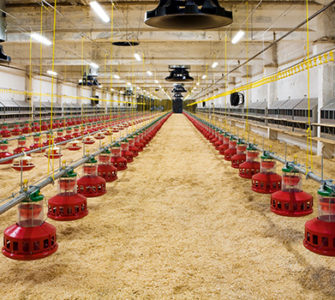Stress is nothing to mess with, folks: 5 steps for connecting with each other in troubled times
By Tom Tabler, PhD
Extension Professor
Mississippi State University Extension Service, Poultry Science Department
Mississippi State, MS
I read with great interest the article by Larry Rueff, DVM, about the effects of COVID-19 on the folks that grow and process our food. It hit close to home.
The article got me to thinking about just how fragile things are — not just in the chicken business but the people business as well. Much like our animals, there are folks who need a little checking on right now.
Let me regress a bit first and tell you about three experiences that have played a large part in who I am today and explain how I relate them to the COVID-19 pandemic.
My dad used to buy feed for our milk cows in 100-pound cotton sacks. The sacks had pretty designs, and for years, my mom used them to make shirts for my brothers and me. I got compliments because the shirts were so pretty, but I also got my share of teasing from kids at school once they learned my shirts were once feed sacks. The teasing had a big effect on me. It was painful at the time, but I figured out how to get along with just about anybody, including people who gave me a rough time.
A second memorable experience occurred in college. I had a speech teacher who recognized I was a loner and introvert. She told me I could be a loner all I wanted but that if I was to get along in this world, I’d better learn how to act like a grouper or life was going to be tough. That teacher was right. She also taught me a lot about reading people, watching for signs and recognizing when something isn’t quite right.
Here’s the third experience that had a huge impact on me. After I got out of college, I worked as a broiler service technician. I got to know a grower who had a nice farm, a wonderful wife and kids that were about my age. He was a good grower, not on top all the time but way better than average. He was also a serious worrier, as am I. A few years later, after servicing chickens was in my rearview mirror, I learned this grower left his house one morning, went out to the barn and hanged himself from one of the rafters.
Raw emotion
I’ve never forgotten these three situations, and although I don’t dwell on them, the COVID-19 pandemic has prompted me to revisit them.
Farming is not an easy occupation, and as Dr. Rueff indicates in his article, not all stories end happily. The raw emotion and the heart and soul farmers devote to their profession — and the toll that their devotion and profession takes — is difficult for anyone outside farming to comprehend.
We are all trying to find our way in a world that did not exist 6 months ago. It’s a struggle. It’s stressful. And it’s harder for some of us than for others. I say all that to say this: We all have got to look out for each other right now and watch for signs. If you see something that’s a half bubble off plumb, say something. None of us want to see our animals suffer. Neither do we want to see our family, friends, neighbors or fellow farmers suffer. We check on our animals to keep them safe; let’s check on each other to keep us safe as well.
Managing stress
Stress is nothing to mess with, folks. And some of us just aren’t very good at taking care of ourselves and may need a little help. There’s nothing wrong with that. We are making things up as we go right now. It’s stressful on everyone, but there are ways to deal with stress.
Here’s an adaptation of the Managing Rural Stress Model from my friends at the University of Arkansas Cooperative Extension Service1:
Managing Rural Stress Model
Step 1: Assess needs and stressor impacts
- How big is the stressor?
- What needs become necessary (more income, sleep, etc.)?
- How manageable is the impact (not at all to no problem at all)?
Step 2: Identify and access resources
- What resources are available?
- Categorize these resources — personal, material, etc.
- Effective use and recognition of resources
Step 3: Pursue good-quality decisions
- Gather information
- Assess options
- Discuss key decisions with others
- Clarify goals
- Be open to change
Step 4: Connect with support sources
- Assess support options
- Informal — family, friends
- Formal — faith, professionals, other
- Be willing to approach others for support (this may be tough, but you must be tougher)
Step 5: Use effective coping strategies
Rest and renew yourself
- You can’t care for your farm or your family very well if you don’t care for yourself
- Lean on sources of personal renewal that you value (faith, nature, music, fishing, etc.)
- Build in “rest breaks” daily/weekly
- Connect with those who give you strength, love and support
Healthy communication
- Be willing to share your stresses/concerns with others
- Talk/share with others who understand or who you trust
- Listen to and support one another
- Avoid withdrawal or anger
Focus on relationships
- Reassure family members of your love and commitment (they’re stressed right now, too)
- Work through conflicts
- Follow consistent family routines that offer security, such as family meals together
I have faith and believe we will work through COVID-19. I also believe that, for many of us, other people have recently become more important than material treasures, and that’s a good thing. I tend to wear my heart on my sleeve, and I believe that when this is all over, my family, my friends and the relationships I have with folks across the poultry, beef and pork industries will be even more dear to me than they are now or were 6 months ago. We take a lot of things for granted in this country that we shouldn’t, not the least of which are our fellow human beings. Everyone, please stay safe, take care of yourselves and look out for each other. We are all stronger together than any of us are alone. And please, please, please realize that things are never as bad as they seem, that you are loved and needed, and that help is always available.
1Simon R. 2020. Farmers and stress: COVID-19 adds fuel to the fire. Univ of AR Coop Ext Ser. Available at: https://www.uaex.edu/life-skills-wellness/health/covid19/farmers-and-stress.aspx.
Editor’s note: The opinions and advice presented in this article belong to the author and, as such, are presented here as points of view, not specific recommendations by Poultry Health Today.
Posted on June 23, 2020

















